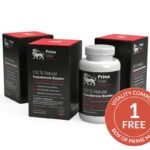Fitting in good nutrition and hydration alongside training, work and a social life can be a challenge during the week but is essential if you want to keep healthy, be fuelled for your training sessions and recovered enough to smash a longer weekend run! The tips and plans below will help you to maximize your training, recover effectively and be fuelled up ready to hit the start line.
TRAINING STAGES
Early morning sessions:
Getting in a training session before work can be a great way to start the day.
To maximize the metabolic effect of these sessions (especially if they are light in intensity) you might want to try completing your run with low-carbohydrate stores. This means having water and a light protein-based snack (scrambled egg, handful of nuts) upon waking or just some water if you can’t stomach food too close to running.
If you do try running without any carbohydrates first, make sure you have a higher carbohydrate meal with some protein after you’ve finished training to recover and refuel. A good example would be a Recovery Shake with milk, banana, honey & yogurt added.
Try to eat a small low-fat meal, containing moderate protein and carbohydrate 2-3 hours before you train (e.g. a small jacket potato with some tuna & sprinkling of cheese with water). If you can’t eat this close to running or you’re training immediately after work, make sure you have a small snack with you to have 30-60 mins before you run or sip on some sports drink.
HYDRATION
Try to drink 5-7 ml of fluid per kg of body weight before starting the exercise.
For a 75 kg (11st 8lbs) individual, this equates to 375 – 525 ml.
To enhance fluid absorption and encourage you to drink more, a Shake Of Protein powder with minerals mixed with water is an ideal option.
POST TRAINING
Post-training:
It’s really important to consume a recovery snack or shake containing carbohydrate and protein after training to help repair muscles, refuel and recover carbohydrate stores and help with sleep quality. A fresh berry smoothie made with banana, berries, greek yoghurt, milk is a superb option here, as the fruit will provide carbohydrate and a dose of antioxidants,s which can be useful in combatting muscle soreness. Drinking a smoothie will also top up fluid levels after your session, especially if you’re training after dinner/late evening and you don’t want anything too heavy prior to bed.
Tip: On your training days take 5 minutes in the morning to prepare your smoothie, some fruit and a bar (e.g. have these snacks packed for work so you can nutritionally prepare for training just before you leave work).
OTHER TRAININGS
Resistance/strength sessions:
Making sure protein is available for your muscles before and after these sessions will help you to maximise the benefits of doing strength work. Try to have a high protein snack (protein Shake or nuts/greek yoghurt/boiled eggs) before you head into the gym and then again after you are finished.
MYTH BUST: It’s a myth that protein makes you bulky! Consuming 3-5 small doses of protein spread out throughout the day (for example a shake containing 1 scoop protein, a small piece of chicken or fish, a small pot of greek yoghurt) will help to keep you feeling full throughout the day and will make sure your muscles are recovering from your training sessions.
Interval/tempo sessions: For sessions consisting of high-intensity intervals, or shorter fast-paced runs, it might be useful to have a rapidly absorbed form of carbohydrate to hand.
Tip: If you’re new to using caffeine or you don’t regularly drink tea/coffee try out small doses first to see what works for you. Be wary of using it around late sessions if they are too close to your bedtime as it may interfere with your sleep quality.






Leave a Reply